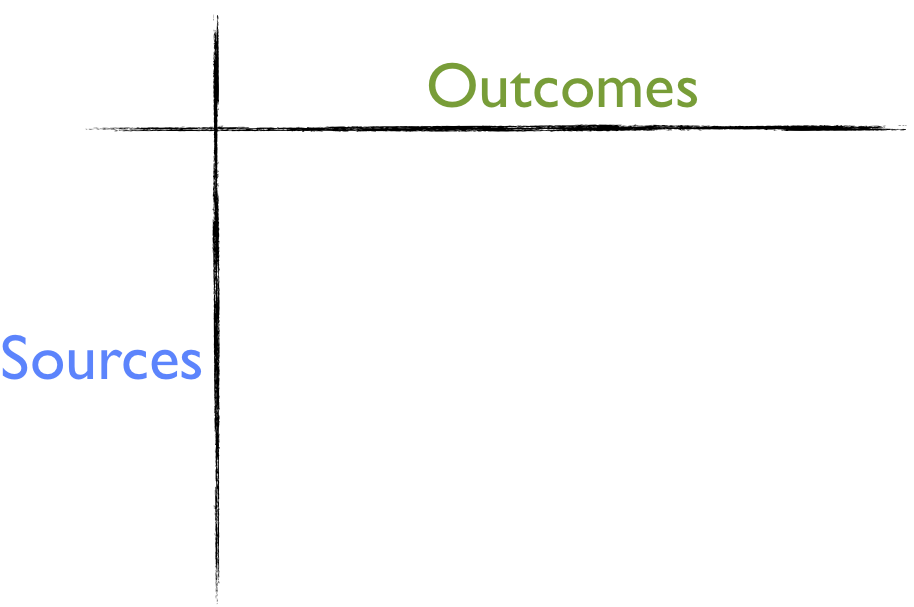I had the opportunity to speak this week in front of several richmond business owners and managers. The topic of the talk was around web analytics and online trends. It was my hope to simplify the topic of web analytics into something actionable. To do this, it was necessary to over come the biggest burden faced by web analytics: the over-abundance of metrics and reports. Google Analytics alone gives you access to nearly 300 different metrics and dimensions, wrapped into over 80 different standard reports.
That’s a lot.
Access to this much data often times leads to inaction instead of action. Or worse, action taken based on metrics that are given more importance than they deserve. So given this rather glim scenario faced by many companies and organizations, we needed to reestablish not just the importance but the criticality of utilizing web analytics. To do this, I asked everyone in the room a series of questions. The first two were:
1) have you ever used data from your website to make a strategic decision?
2) do you use data from your website to make strategic decisions on a regular basis?
A little less than half raised their hand to the first question. Fewer raised their hand for the second.
I then proposed the hypothetical situation of the internet going away completely and for everyone in the room to determine where their business would be in that scenario. They either:
1) wouldn’t be affected because the internet has a negligible affect on their business
2) would be affected to a degree but the business could survive without it
3) would be forced to close up shop.
The point of this exercise was to reveal that any business that relies in part or completely on the internet should have some sort of measurement process to understand the return on their investment. After all, a business that relies on the internet to generate revenue in likely making an investment into it – be it a website, search engine marketing, social media etc.
So where to start? Remember from above there are nearly 300 different metrics and dimensions to use when analyzing your website. To make sense of the myriad of data, it’s important to understand the question you’re trying to answer. In this case, we’re trying to answer the question of ROI.
The one report we can use to answer this question is a Source/Outcomes report. This report serves to answer two questions: “where did my visitors come from” and “how well did they do at completing my site objectives?”
This is the 10,000 foot view that can quickly tell us which investments are paying off and which ones ares not. It can tell us more about our site than almost any other single report. If you aren’t looking at any reports about your website or you haven’t made a decision from one, this is the report to get started with. It will very quickly tell you what is paying off and what is not in terms of investment.

Beware: making use of this report is a little like opening Pandora’s box. Once you get the taste for blood you’ll be thirsty for more. Inevitably you’ll have more questions about why certain channels aren’t working as well as others or what it is about certain channels that make them work so well. That’s where the other couple hundred metrics start coming into play.
Quick note:
Before signing into your Google Analytics, realize that this report doesn’t come automatically (what good things in life do, right? :) ). No matter what web analytics platform you use, it can’t automatically decipher what your site’s objectives are. That up for you and your team to decide. From there, the proper configuration needs to take place (ecommerce, goals, goal value, event tracking, etc) in order for the platform to show you what you want to see.
In future posts I’ll dive deeper into the content of last week’s talk. It was my hope that with the points made above I could set the stage for the importance of using data and where to start if you were at the ground level (similar to what I tried to do in this post). Although seemingly rudimentary, it is so vital to break through this first wall before trying to tackle anything else.





Agree, disagree, or just have something to add?
Leave a comment below.